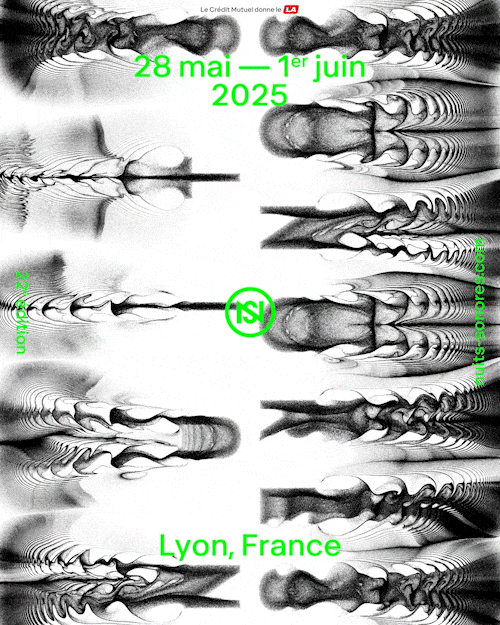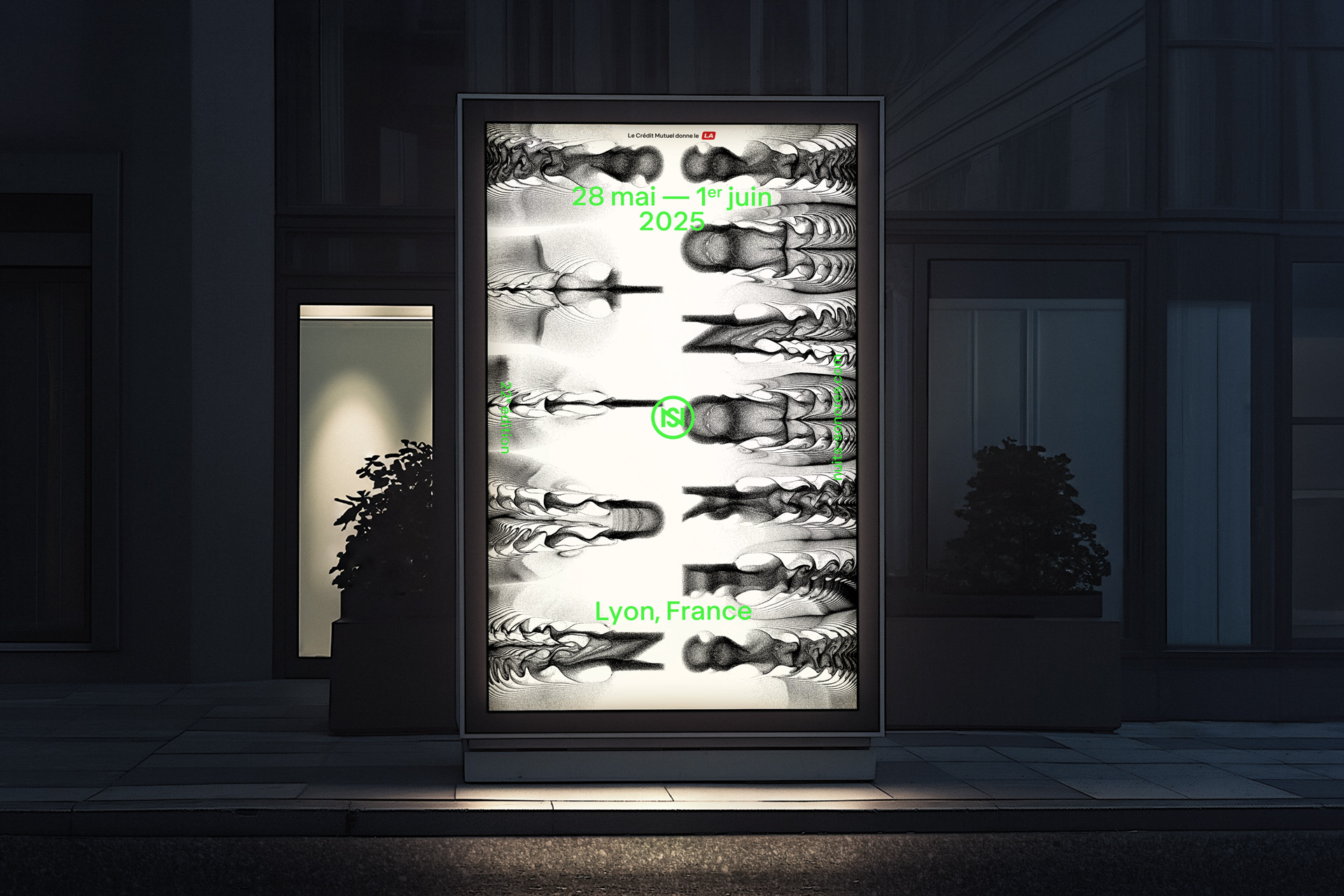Edito & visual Identity
Celebrating the ephemeral
and creating spaces for joy
In the face of mounting anxieties, we need to bounce back, to breathe, and to find spaces that offer possibility and joy. To make the most of moments of festivity, to celebrate the ephemeral, and to acknowledge how precious that is. We’re not saving the world; we’re simply organising a festival. But in the face of such overwhelming circumstances, to think that we are somehow disconnected and isolated from the world around us would be tantamount to giving up, abandoning what is most important.For over 20 years, Nuits Sonores has been celebrating artists and youth, the freedom to meet and to dance, but also to think.
Nuits Sonores is a celebration of Europe, its culture and its diversity. This year, as the festival reaches its 22nd edition, its mission remains the same: to welcome aboard a new generation of artists and festival-goers who will make the event their own and help to shape its narrative, setting the points of reference that make this collective experience what it is and that make possible these unforgettable moments that punctuate our lives.The 2024 edition will be an extremely tough act to follow. Its site, Les Grandes Locos brought a fresh dimension to the festival: bigger, more vibrant. Nuits Sonores will continue to explore this new home in a reconfigured format that will bring yet more surprises and guarantee festival-goers an even richer experience.
This year more than ever, the main site has been designed to create a space of incredible vitality: four stages offering unique experiences and aesthetics for five full days.The format of the festival’s nighttime programme – its beloved Nuits – is also being revamped in an enhanced version of the familiar setting of La Sucrière.
The change is driven by the desire to create a single nocturnal venue equipped with three stages: a 360-degree dancefloor, an intimate club and an immersive live space. Dedicated to thriving artistic communities, these stages will showcase a full overview of the international and local music scenes.Lastly, the festival will write a new chapter in its shared history with the local area, occupying the urban playground that surrounds it with a series of free daytime events (to be announced at a later date).
These original contemporary formats serve to provide festival-goers with yet more opportunities to ride our festive wave.
Recapturing this energy is a mouthwatering prospect, something joyful and euphoric on the horizon, like an antidote. Let us celebrate!
This year, Nuits sonores called on the American studio DIA, specialists in kinetic identities.
DIA, A duo with character(s)
Meg and Mitch live between New York and Chamonix, and share a passion for art. Together, they have created DIA - Dreamers Ink Aesthetics in long form - a studio where letters and shapes come to life to create an immersive, never-before-seen visual experience.
At DIA, nothing is static: everything is circulation, cadence and vibration. Typography leaves its comfort zone: it moves, lives and metamorphoses, animated, stretched or textured.
This characteristic use of motion design and generative tools has built the reputation of the New York studio. Large and small alike have called on their deft sense of rhythm: Apple, Balenciaga, Nike, Saint Laurentor the Biennale de Chaumont to name but a few. But DIA doesn't limit itself to commissions. As teachers and researchers, they like to explore and push the boundaries of graphic design.


A minimalist and a dynamic approach
The 2025 poster stands out for its bold approach to black and white.
We had already explored this approach for the 5th edition in 2007.
For Nuits sonores, DIA created a customized generative particle system, capturing the immersive, rhythmic energy of sound waves.
The aim was to translate the visceral pulse of live music - the tangible impact felt in concerts and clubs - into a dynamic visual experience.